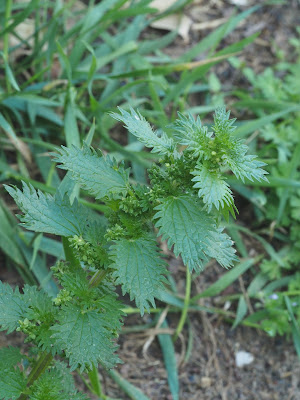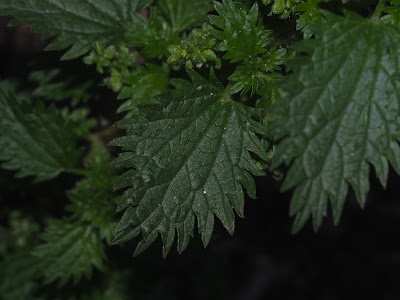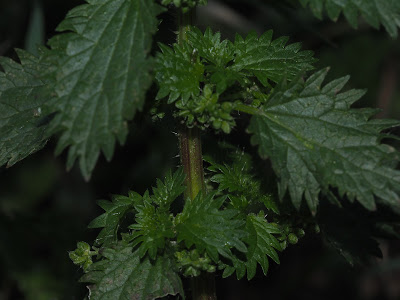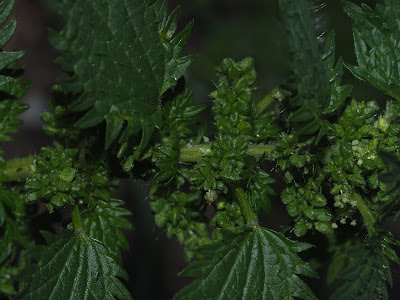Common name: Small Nettle
Scientific name: Urtica urens 歐蕁麻
Genus: Urtica 蕁麻屬
Family: Urticaceae 蕁麻科, nettle family
Remarks: Trichomes on the stems and the leaves would cause stinging sensation and a rash when you brush against them. See Urtica dioica, the stinging nettle, for details.
Unlike the perennial and dioecious stinging nettle Urtica dioica, Urtica urens is an annual plant, monoecious (with male and female flowers on the same plant) and generally much shorter. It can be distinguished from the stinging nettle by its more rounded leaves with coarser, deeper toothing and with the terminal tooth of similar length to the adjacent teeth. The lower leaves are shorter than their longer petioles and have stinging hairs only.
Flowers: 2.5 mm diam., unisexual, monoecious, in dense, nearly simple, axillary spikes 100 mm long; male flowers at the base, perianth lobes green, ovate-obtuse, scabrid; female flowers 1.5 mm diam. at the top of the clusters, perianth lobes 2 large and 2 small, lanceolate, acute, scabrid, the former longer than the nut.
Fruit: Nut 2.0 x 1.5 mm, ovate, truncate or cordate, compressed, margined, tuberculate, light green
Date: 21st June
Fruit: Nut 2.0 x 1.5 mm, ovate, truncate or cordate, compressed, margined, tuberculate, light green
Date: 21st June
610 An erect, monoecious annua, can reach up to 60 cm.
615
618

Trichomes on the stem.
619
















No comments:
Post a Comment